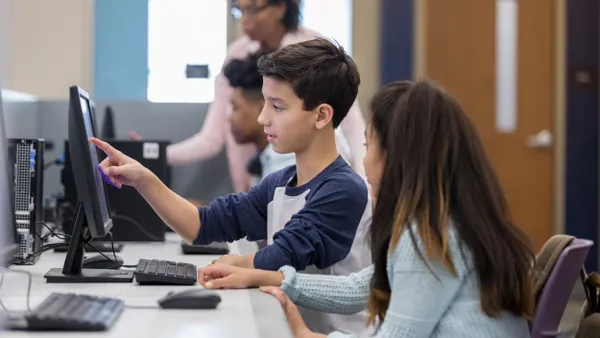Dive Brief:
- At a recent Ed Surge Fusion conference, a group of technology industrialists worked with school leaders to discuss the challenges of preparing students for jobs in a climate where artificial intelligence and augmented reality are evolving and changing the career landscape forever, EdSurge reports.
- Several leaders noted that the most important aspects of education for these jobs were not just tech exposure, but the development of problem-solving, critical thinking and soft skills as well.
- School leaders need to make tech purchases wisely based on its cost, the training available, the buy-in from staff members, and the chances it will be used or misused.
Dive Insight:
The ultimate goal of education is to create good citizens who have the skills necessary for employment in the contemporary world. However, when the job market is evolving, this becomes more of a challenge. Some jobs that are now in existence will likely be phased out in 10 years, while brand new jobs, likely ones that require tech-savvy individuals, will appear on the horizon. And there will clearly be a growth in STEM fields in the future.
For school leaders, the initial reaction to such news is generally either excitement or a sort of panic. The general thinking is that tech jobs require in-depth preparation, and that requires high-priced ed tech equipment, software and instructors that many schools can ill-afford. Sometimes school leaders are attracted to the next shiny piece of ed tech dangled before their eyes in the hopes that it will provide the solution, but such solutions rarely work and really are not needed at the K-12 level.
Paul Osterman, an economist at MIT, conducted a study in 2016 in which he talked with manufacturing employers across the country about the kind of employees they need in the future. Overwhelmingly, these employers said they want workers with rather basic skills: the ability to read and understand an instructional manual (ELA skills), the ability to do community-college level algebra (math skills), and the ability to get along well with co-workers (people skills). Surely all students today need basic computer literacy, but the basic recipe for education for most students remains the same: reading, writing and arithmetic — with a dash of social-emotional learning.










